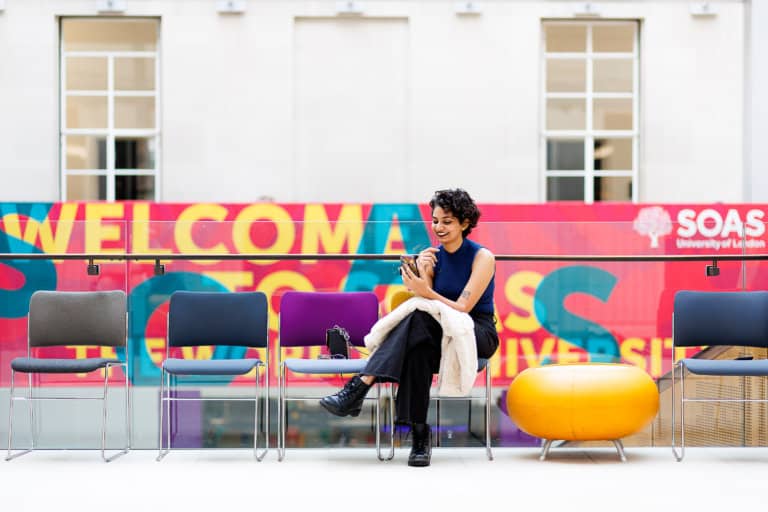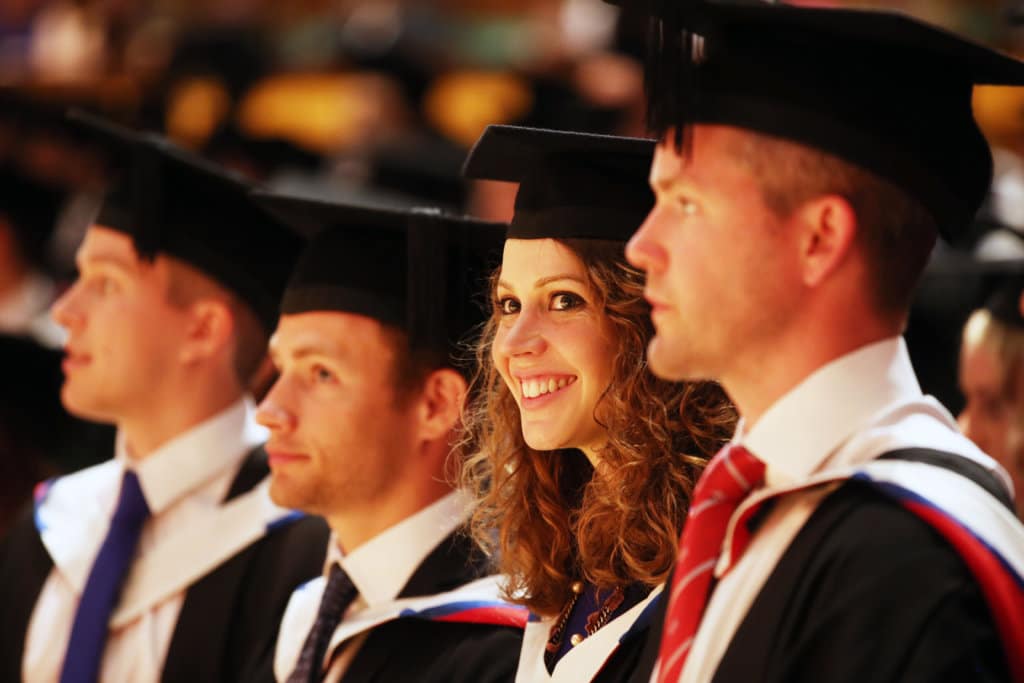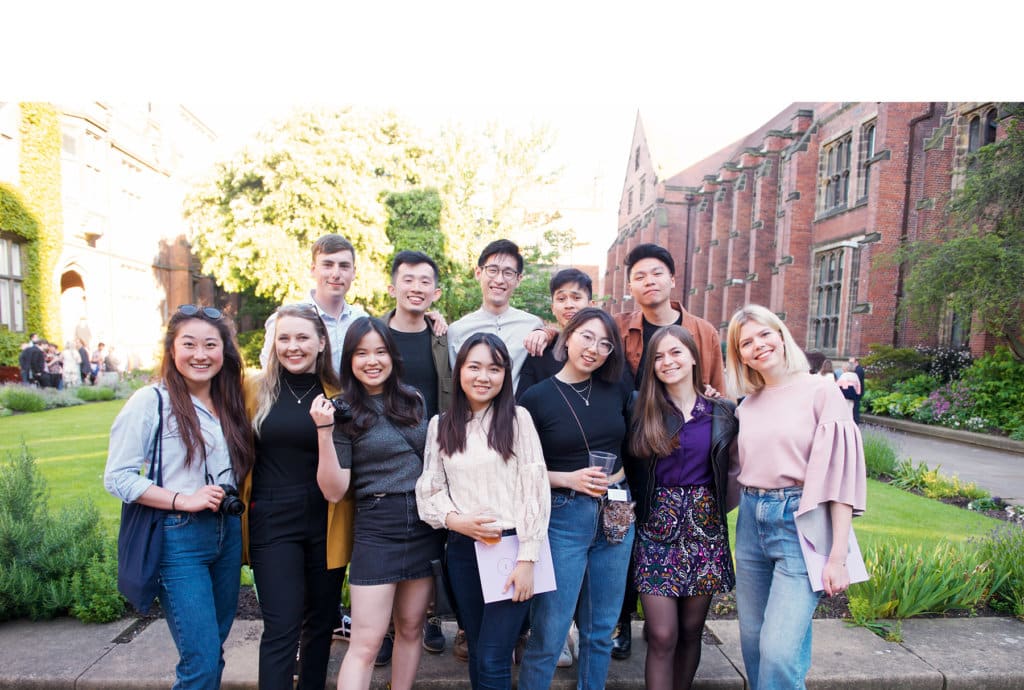
Most students may think a degree in technology, business or medicine is the only way to create an impact in the world today. While those are held in high regard, an education in the arts can lead to outcomes that are just as outstanding, fulfilling and meaningful. Degrees in this field give you the freedom to be creative, inspire others and make the world a better place through your work. That’s not all — an arts degree will equip you with enduring, transferable skills like problem-solving, critical and analytical thinking, and creativity.
If you are not sure where an arts degree can take you or what you can do with them, think again. The famous Le Corbusier studied art history and went on to influence modern architecture in buildings like Complexe du Capitole in Chandigarh (India), National Museum of Western Art, Tokyo (Japan) and Unité d’habitation in Marseille (France). Writer, actor and director Trey Parker studied music before going on to become the co-creator of award-winning animated sitcom “South Park.” John Mayer, Paul McCartney and Miles Davis all studied music.
If you envision a future where your work and thoughts shape the modern world, head to the UK. It is home to some of the best universities globally for arts and humanities. London represented 31% of creative industries’ employment — a feat boosted by its bustling location, vibrant artistic culture and a seemingly endless roster of exhibitions.
Here are four universities in the UK for you to consider:

Source: SOAS University of London
SOAS University of London
Screenings of films directed by aspiring Ang Lees, evenings of music exploring fluidity and transformation in Balinese music and thought, students learning to write their own names in a contemporary Chinese artist’s New English Calligraphy, a “Festival of Ideas” led by students and academics of the Centre for Creative Industries, Media and Screen Studies — non-Western art, the academic research-led exploration of it, shines at SOAS University of London’s School of Arts.
Here, it is the visual and material arts, music and sound studies, curating, media industries and digital cultures of Asia, Africa and the Middle East, and their global diasporas, that take centre stage. The scale and reach of SOAS’s expertise in these fields? Unrivalled by any other institution worldwide.
World-renowned scholars enliven classrooms with their specialised knowledge and vast industry experience honed from collaborations with musicians, museums, galleries, cultural heritage institutions, publishers and others. World-class museums and institutions, steps away from campus, add world-class collections of Asian and African art to everyday learning. Access to London’s vibrant commercial art sector lets students profit from more than just industry insights, but internships, field trips, storage visits, and guest talks by curators, artists and other practitioners, too. A partnership with the British Council provides a School of Arts student with one fully funded residency at the annual Venice Architecture Biennale. With opportunities to select modules from other departments, the pursuit of knowledge is seemingly boundless here.
The School of Arts is made up of three departments: Department of the History of Art & Archaeology, Department of Music and Centre for Creative Industries, Media and Screen Studies. Each offers programmes backed by the latest, cutting-edge research by leading experts in the field, such as the MA Music, MA Global Creative and Cultural Industries and MA History of Art and Archaeology, the last of which could be tailored to certain regions like East Asia and the Islamic Middle East. For those interested in a career in the museum or gallery world, check out SOAS’s MA Curating Cultures | SOAS.

Source: Ulster University Student Guide
Ulster University
Ulster University is a university in Northern Island that’s home to about 27,000 students across four campuses — Belfast, Coleraine, Derry ~ Londonderry and Jordanstown. All its degree programmes are developed in collaboration with industry and professional bodies.
Known for its excellence in teaching, innovation and research, Ulster University has been helping graduates pave the way for successful careers in various industries. The Faculty of Arts, Humanities and Social Sciences offers programmes across six schools — Belfast School of Art, School of Applied Social and Policy Sciences, School of Arts and Humanities, School of Communication and Media, School of Education and School of Law — that stand out for its first-class teaching in world-class facilities.
Postgraduate study at the Belfast School of Art lets students conduct innovative work in a dynamic studio-led environment. They have the help of the latest technology and research-active staff, who also leverage their global networks to bring figures in the world of art and design to Belfast to work with students.
Programmes offered here include the MA Games Design. It provides strategic and intellectual linking of ideas, processes and outcomes, led by staff who have worked on multiple titles released on modern platforms such as PC, XBox and PlayStation.
Just as unique is the MA UX and Service Design. This research-focused master’s programme fuses three emerging specialisms – User Experience, Service Design, and Design Thinking – as part of a single educational experience. Students cover principles and techniques in semester one before proceeding to specialised and work on a self-directed project in semesters two and three.

Source: Cardiff University
Cardiff University
Cardiff University is a thriving, innovative university located on the coast of South Wales. A degree from Cardiff can take you far as 84% of its graduates begin highly skilled jobs after graduating. Students looking for a range of professionally recognised degrees in the field of arts and humanities will find this university exceeds expectations.
At its College of Arts, Humanities and Social Sciences, students are introduced to a vibrant, dynamic and inspiring community where a shared love for learning is fostered. Facilities are excellent — students have access to the trading room in Cardiff Business School, radio and television studios in the School of Journalism, Media and Culture, and access to 24-hour modern libraries across campus.
There are 10 academic schools under the faculty, and every course is designed to equip students with in-depth knowledge and experiences to prepare them for the future. The Global Cultures (MA) explores the 21st century’s cultural industries and creative economy. Here, students will develop an understanding of cultural products, transnational interactions, and cultural diversity in a globalised world. Cases that span the UK, China, Japan, Latin America, North America and Europe provide insight into every aspect of culture.
Another exciting programme to explore is its Music (MA) which challenges students academically and musically within a lively community. Performers, composers, music scholars and aspiring educators will find this programme exceptional and a solid preparation for the future. They will learn composition, practise recitals, and complete dissertations, among others.

Source: Newcastle University
Newcastle University
Nestled at the heart of the North East of England, Newcastle University offers more than 185 undergraduate degrees and over 300 postgraduate degrees to students worldwide. The School of Arts and Cultures is where students thrive in a creative and multidisciplinary environment.
Many former students and current faculty are both academics and practitioners, which gives students a glimpse into the real world and its challenges. Students have the opportunity to collaborate with sectoral partners from other fields too, allowing them to experience what a multidisciplinary environment is like.
The school has three broad subject areas: Fine Art, Music, and Media, Culture, Heritage, with more subgroups under each. Students can choose to explore different programmes like the MFA Fine Art. Access to spacious studios, workshops, and gallery spaces allows them to foster their creativity in sculpture, film, installation, photography and more.
Those more musically inclined will find the music programmes here vibrant with extensive performance opportunities. The different programmes include Music MMus, Music MLitt, and Music MPhil, PhD. All three are research-based and supported by tutors who are highly trained in this field. Students have options to further develop intellectual and musical skills in different areas, including classical, popular, folk and traditional and more.
Its Creative Art Practice MA is a two-year programme that is designed for graduates from any form of creative practice. Those who want to work between disciplines and make the most of technology will find this programme useful and informative.
*Some of the institutions featured in this article are commercial partners of Study International







